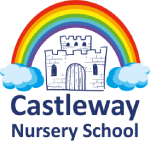Geography
We are Geographers. We are Castleway.
Our geography projects are well sequenced to provide a coherent subject scheme that develops children’s geographical knowledge, skills and subject disciplines. Geographical locations are not specified in the national curriculum, so they have been chosen to provide a broad and diverse understanding of the world.
Where there are opportunities for making meaningful connections with other projects, geography projects are sequenced accordingly. For example, children revisit the geography of settlements in the history project School Days after studying types of settlements in the geography project Bright Lights, Big City. All geography projects are taught in the autumn and spring terms, with opportunities for revisiting less secure concepts in the summer term.
Foundation Stage 2
In Foundation Stage 2, as part of our 'Understand the World' curriculum, children learn that there are different countries in the world and talk about the differences they have experienced or seen in photos. Children begin to draw information from simple maps and recognise some similarities and differences between life in this country and life in other countries. When comparing places around the world the children begin to recognise that some environments are different ot the one in which they live and that some places are special to members of their community. They begin to understand the need to respect and care for the natural environment and all living things.
Key Stage 1
In Key Stage 1, each autumn term begins with essential skills and knowledge projects (Our Wonderful World in Year 1 and Let’s Explore the World in Year 2). Teaching these projects in Years 1 and 2 enables children to be introduced to, or revisit, critical geographical concepts, aspects, skills and knowledge. These projects prepare children for the study of more thematic geography projects in the following term. In the spring term of Year 1, children study the project Bright Lights, Big City. This project introduces children to the geography of urban environments and the physical and human features of the United Kingdom. In contrast, in the spring term of Year 2, children carry out a detailed study of coastal geography in the project Coastline. This project introduces children to the geography of coastal environments and provides children with the opportunity for in-depth coastal fieldwork.
Lower Key Stage 2
In Lower Key Stage 2, children begin with essential skills and knowledge projects (One Planet, Our World in Year 3 and Interconnected World in Year 4). Teaching these projects in Years 3 and 4 enables children to further develop their skills, knowledge and understanding of key geographical aspects and concepts and prepares them to study more thematic geography projects in the following term. In the spring term of Year 3, children study the project Rocks, Relics and Rumbles, which explores physical features and geographical phenomena, including earthquakes and volcanoes. In contrast, in the spring term of Year 4, children carry out a detailed study of the physical features of mountains and rivers, which includes opportunities for in-depth fieldwork.
Upper Key Stage 2
In Upper Key Stage 2, children again begin with essential skills and knowledge projects (Investigating Our World in Year 5 and Our Changing World in Year 6). Teaching these projects in Years 5 and 6 enables children to develop their skills, knowledge and understanding of key geographical aspects and concepts and prepares them to study more thematic geography projects in the following term.
In the spring term of Year 5, children study the seasonal project Sow, Grow and Farm, which explores farming, agriculture and rural land use. In the spring term of Year 6, children study the polar regions in the project Frozen Kingdoms. The project includes an in-depth analysis of the characteristics of these regions, including environmental issues.
Throughout the geography scheme, there is complete coverage of all national curriculum programmes of study


